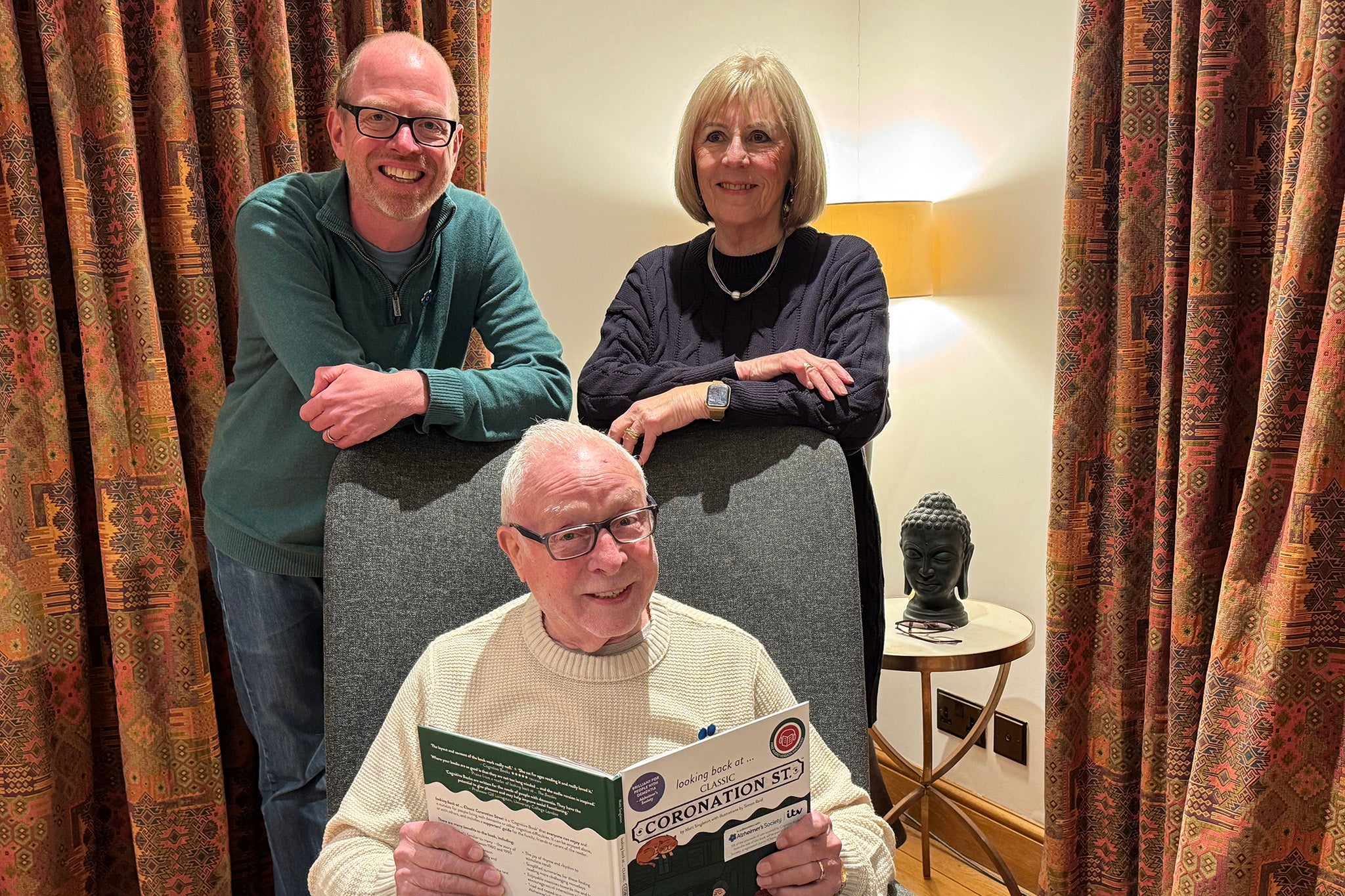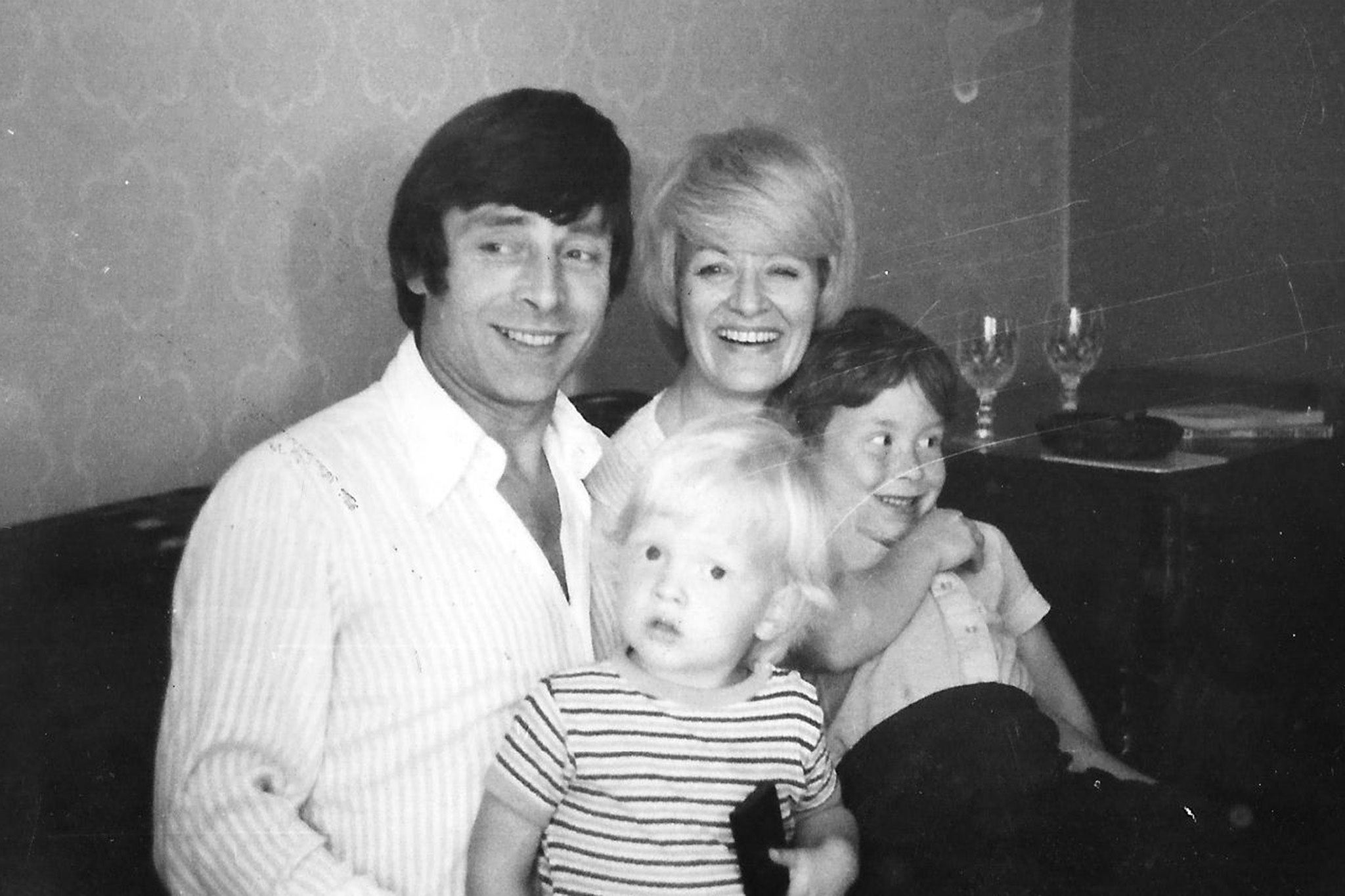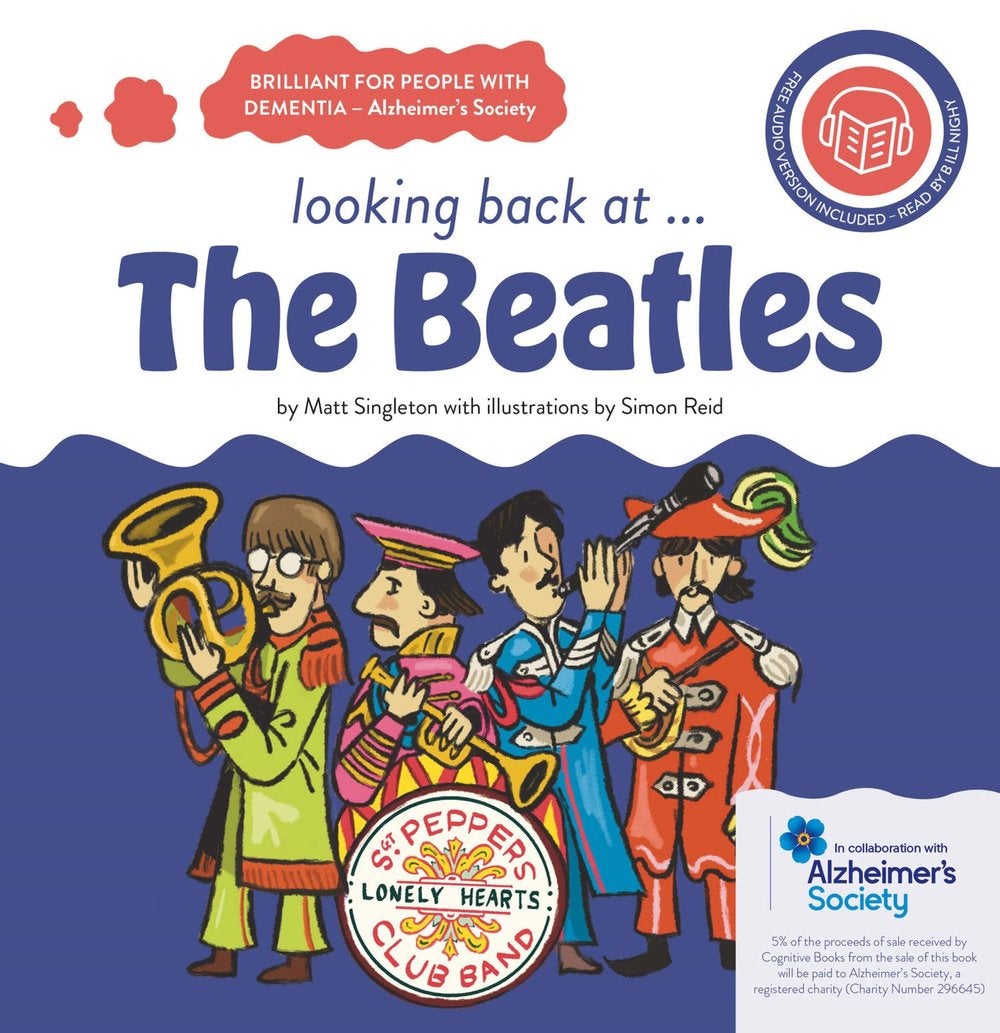How I created a book that my dad with dementia would love for Christmas
As families gather for their festive celebrations, this is when many people may start to notice a shift in their loved ones’ behaviour. When it happened to Matt Singleton, he thought he was losing his dad, but as an expert in ageing, he was uniquely placed to do something about it...

Dads are notoriously tricky when it comes to buying Christmas presents, but I was always lucky: my dad loved to read, and so every year we gave him books, which he received with great enthusiasm. Most of my childhood memories involve him sitting on a sun-drenched holiday balcony, book in hand, lost to the world. He had a particular passion for trashy US thriller novels and an inexhaustible appetite for books about football and rock’n’roll.
I took great pleasure in seeking out that read that he’d love but, in recent years, I started noticing that his presents sat unread. My stepmother, Colleen, quietly told me that he could no longer follow the stories, and, not for the first time, I felt that his world, once so filled with voices and ideas, was shrinking.
As is often the case, Dad’s condition started to become more apparent during Christmas. Perhaps it has something to do with the cherished family rituals and habits of the season, but differences in behaviour stand out more clearly.
Dad was diagnosed with Alzheimer’s disease and vascular dementia in 2017 but we had already clocked that he was becoming very forgetful and his previously enthusiastic participation in conversations and celebrations had waned.
“Come on, we only did it last week. You must remember!” was a phrase we regrettably found ourselves often using. When he received the diagnosis, it felt for us, as it does for so many families around the world, as though hope was ending. We could initially only see what we would lose rather than what was still there.
Dad and I have always been close. After Mum’s death in 1986, he became the primary parent to my then 14-year-old sister, Ros, and 11-year-old me. Juggling a small engineering business and raising the two of us must have been physically and emotionally exhausting, but he was always very present for us. Car journeys to football and cricket matches became a special time for me and him.
Christmas is often a difficult time for people living with dementia – it can make them feel even more anxious and confused. For families and loved ones, it can be a painful reminder of how far a condition has progressed. The change of routine can be bewildering, as can visitors, loud noises, bright lights, new smells and unexpected food, and for families, their distressed reaction is a sharp contrast to Christmases past.
It’s a time when loneliness feels most acute as the world outside seemingly continues its merry traditions while you are left navigating a new normal as well as some intense emotions that can run the whole gamut of frustration, anger, sadness and loss, sometimes in the space of one hour.
I was determined not to let a source of joy vanish from Dad’s life and I wanted to find a way for him to still find pleasure out of books. Maybe if I found the right ones, they could help spark some deep memories. I searched for books that had been specifically designed for people living with dementia but to my astonishment, I found none suitable. And so I decided to write my own.

Being a gerontologist, someone who specialises in the physical and social sciences behind ageing, part of my work includes understanding cognitive deterioration. I gained an MSc at the Centre for Research on Ageing at Southampton University, graduating aged 40 and it has given me great insight into the reasons for Dad’s decline in reading and, crucially, helped me work out how I could help him, and others like him, regain his lost passion for books.
I knew I had to focus on topics or “cohort memories”, the ones forged long ago that endure as the memory loss associated with Alzheimer’s progresses. Memories can be likened to a bookcase with the most recent ones arranged on the top shelves and the oldest ones at the bottom.
Neurodegenerative conditions like dementia act like an earthquake, shaking the bookcase and bringing the newest memories crashing down. The ones that remain are the early ones.
For Dad, these early, important memories included The Beatles, his favourite band, and the 1966 World Cup. I started to see his difficulties with reading as a problem to be solved rather than something to accept.
Neurodegenerative conditions like dementia act like an earthquake, shaking the bookcase and bringing the newest memories crashing down. The ones that remain are the early ones
He struggled to focus on long plots, so the solution was to write a short book about his beloved Beatles, with a self-contained story on each page as well as the overall narrative of the band’s journey. I replaced full pages of text with rhyming couplets and illustrations to help him follow the story.
I was so proud to present Dad with his new book that I had printed just for him and this time it was not left to gather dust. In fact, he couldn’t put it down. Buoyed by its success, I showed it to UCL’s Professor Gill Livingston, one of the world’s leading dementia researchers.
She explained that the ability to read endures for a long time after diagnosis and that maintaining “social functioning” is incredibly important for wellbeing. Reading with loved ones, and the conversations that can spark, is an ideal antidote to the confusion and anxiety that often accompanies the condition.
Livingston thought my Beatles book might help others and suggested I apply for Alzheimer’s Society’s Accelerator Programme, which provides funding and access to expertise for innovators in the dementia space. Most importantly, you get to work with people living with dementia and their loved ones when developing something that can really help.

My proposal was accepted, and a team of us started to develop a series of books called Looking Back At…, paying careful attention to the feedback from people with lived experience. Our illustrations used bright, vibrant colours, and the quizzes and exercises based on cognitive stimulation therapy – to encourage that all-important social interaction – were greeted with real enthusiasm.
We added a supporter’s guide to help carers and loved ones become effective co-readers. The Alzheimer’s Society introduced me to some of their celebrity supporters and Bill Nighy agreed to record the audiobook. One year on, the little book that I had written in a moment of sadness for Dad was out in the world as an actual published book for others to share with their loved ones with a similar love of the Beatles.
We’ve since published two more: one about the 1966 World Cup and one about Colleen’s great love, the classic years of Coronation Street, a love shared by many people with dementia.
This Christmas, we’ll see dad on Christmas Eve. He loves spending time with his grandchildren, and I’m looking forward to seeing his beaming face when he realises that he and Colleen have given their youngest grandson their traditional gift of the Arsenal home shirt. And I’m personally excited about giving Colleen her copy of Looking Back At … Classic Coronation Street, which I have dedicated to her for the amazing support she’s provided to Dad.

It is easy to look toward the coming festivities with a sense of dread. The worry that your loved one will be having a “bad” day can become overwhelming. But I’ve learned that magic is there in other ways and that, if you let them, Christmases can become just as lovely as the old traditions.
My dad can recite one of the passages from the Beatles book. Bearing in mind that he can’t recall what he did in the last decade, right up until what he had for breakfast, this, for me, is exhilarating.
His dementia may have taken certain aspects of him, but the parts that remain reflect the wonderful man that he still is, and these books not only help him to connect with some of the best moments of his life but allow us to join him there. Hope, surely the central message of Christmas, is still there and that means the world to us all.
The Looking Back At... series is available to buy here





Join our commenting forum
Join thought-provoking conversations, follow other Independent readers and see their replies
Comments